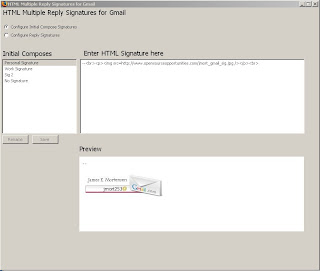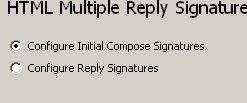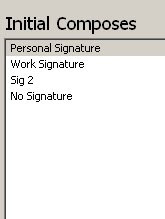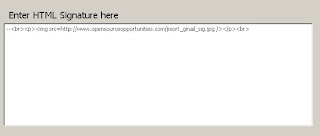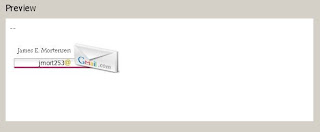 The Introduction to Marketing class focused on Marketing only. In this course, I learned the Four P's of Marketing: Price, Product, Place, and Promotion. I also learned the difference between target marketing and mass marketing. To put it somewhat bluntly, mass marketing equates to quantity while target marketing equates to quality. Target marketing involves thought while mass marketing involves lack of thought.
The Introduction to Marketing class focused on Marketing only. In this course, I learned the Four P's of Marketing: Price, Product, Place, and Promotion. I also learned the difference between target marketing and mass marketing. To put it somewhat bluntly, mass marketing equates to quantity while target marketing equates to quality. Target marketing involves thought while mass marketing involves lack of thought.The class also introduced the concepts of brand awareness and brand loyalty. Brand loyalty was earned. If you're product has loyal customers then you know that you have a superior product. Creating brand loyalty involves honesty and commitment to the customer. You can't have brand loyalty without brand awareness, but brand awareness alone won't create brand loyalty. Consumers may be aware of your product, but they may also think it sucks. The only thing they may be loyal about is not purchasing your product, or perhaps they may help you create awareness that your brand sucks by telling ten people they know that they had a bad experience with your product instead of telling three that they loved it.
Now, brand awareness can create brand loyalty, but it can also stagnate your product's growth, so you shouldn't focus on awareness alone. Creating brand loyalty involves patience, creativity, honesty, hard-work, selflessness, commitment to the customer, and strategic business planning. If you forget or neglect one of these components, you may not be able to create the brand loyalty that you are looking for.
Why be patient? Well, chances are you may be worrying about your bottom-line. My advice is this: Don't. Why, you ask? Because if you worry about your bottom-line you will neglect patience. You will rush your design and production departments into creating a sub-optimal product. This leads to a severe lack of committment to the customer, which is selfish on your part because you're worried more about your bottom line than your customer's satisfaction. You and your team can work 12 to 15 hour days, only to end up sitting in a meeting with your boss trying to explain why the numbers aren't as high as what was originally projected.
Creativity and honesty are like patience, selflessness, and committment to the customer in that they are directly proportional. If you are creative, you can market your product with honesty. If you are honest, you will need to find a creative solution to market your product successfully. If you're marketing department isn't utilizing their full creative potential, you will probably notice that some shady shortcuts are being made. Don't lie to your customers, you'll lose. Unless, of course, your customers are morons. But even if they are morons, don't be shady, it's just not cool.
Besides, it might be you that's the moron. I laugh every time I see the commercials advertising male enhancement: "If this was a gimmick, could we afford to do this?". Hahaha. I don't want to know that answer now, I want to know that answer in ten years, long after a chapter 11 bankruptcy, and long after the marketing team decided to start careers in building maintenance because they didn't like their fresh-out-of-college-with-a-marketing-degree jobs with Extenze. Don't get me wrong, there's nothing wrong with building maintenance, you can learn a lot about home repair, construction, and many other interesting and marketable -- no pun intended -- fields. I've talked to many people who found happiness and success in building maintenance or construction who earned degrees but just didn't like their fields. My point though is that absolutely no creativity went into marketing the product, and that makes me question how much honesty there is behind the product, and how much these so-called marketers actually learned from their marketing classes.
Basically, if you use trickery to manipulate your customers, chances are they -- like me -- won't trust you. So you must be ethical in your quest to create brand loyalty. "Don't be evil", as Google would say.
 Although I've mentioned honesty above, I feel that I need to mention it again because I feel it is very important. Now, honesty directly correlates with commitment to the customer, patience, hard-work, strategic planning, and selflessness. It is perhaps the most important of The Seven Virtues of Marketing. You can be as honest as you want with your customers and still fall flat on your face. At least you can sleep at night though. But, if you're product is subordinate, you're honesty won't sell your product. Now, this doesn't mean that you should be dishonest. No, because as I've mentioned previously, neglecting honesty wlll directly challenge and insult the intelligence of your customers. But if you plan, work hard, be creative, and commit to the customer's satisfaction, then it will be easy to be honest. Your product will practically sell itself. You're customers will ask your sales team questions, and they will give honest answers. You're customers will exclaim "Wow! You mean, if I am not satisfied with Copilot, you'll refund my $5 dollars! Just like that!". Not only will you and your staff feel good about yourselves; but also, your customers will feel good about you as well! They wouldn't think of asking for their money back. In fact, they will probably bring more business to your doorstep.
Although I've mentioned honesty above, I feel that I need to mention it again because I feel it is very important. Now, honesty directly correlates with commitment to the customer, patience, hard-work, strategic planning, and selflessness. It is perhaps the most important of The Seven Virtues of Marketing. You can be as honest as you want with your customers and still fall flat on your face. At least you can sleep at night though. But, if you're product is subordinate, you're honesty won't sell your product. Now, this doesn't mean that you should be dishonest. No, because as I've mentioned previously, neglecting honesty wlll directly challenge and insult the intelligence of your customers. But if you plan, work hard, be creative, and commit to the customer's satisfaction, then it will be easy to be honest. Your product will practically sell itself. You're customers will ask your sales team questions, and they will give honest answers. You're customers will exclaim "Wow! You mean, if I am not satisfied with Copilot, you'll refund my $5 dollars! Just like that!". Not only will you and your staff feel good about yourselves; but also, your customers will feel good about you as well! They wouldn't think of asking for their money back. In fact, they will probably bring more business to your doorstep.These traits, patience, hard-work, honesty, creativity, proper planning, customer committment, and selflessness are important in all aspects of life, including business. Apply this mission statement, methodology, ranting, mode of living, or whatever you want to call it, to your business, your life, and you will create not just brand awareness, but brand loyalty!





